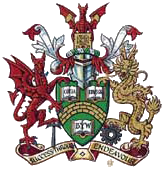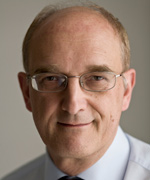
Peter Finch is a Welsh author, psychogeographer and poet living in Cardiff, Wales.

Cardiff University is a public research university in Cardiff, Wales. It was established in 1883 as the University College of South Wales and Monmouthshire and became a founding college of the University of Wales in 1893. It was renamed University College, Cardiff in 1972 and merged with the University of Wales Institute of Science and Technology in 1988 to become University of Wales College, Cardiff and then University of Wales, Cardiff in 1996. In 1997 it received degree-awarding powers, but held them in abeyance. It adopted the operating name of Cardiff University in 1999; this became its legal name in 2005, when it became an independent university awarding its own degrees.

The University of Glamorgan was a university based in South Wales prior to the merger with University of Wales, Newport, that formed the University of South Wales in April 2013. The university was based in Pontypridd, in Rhondda Cynon Taf, with campuses in Trefforest, Glyntaff, Merthyr Tydfil, Tyn y Wern and Cardiff. The university had four faculties, and was the only university in Wales which had no link with the University of Wales.
Television studies is an academic discipline that deals with critical approaches to television. Usually, it is distinguished from mass communication research, which tends to approach the topic from a social sciences perspective. Defining the field is problematic; some institutions and syllabuses do not distinguish it from media studies or classify it as a subfield of popular culture studies.

John Davies, FLSW was a Welsh historian, and a television and radio broadcaster. He attended university at Cardiff and Cambridge and taught Welsh at Aberystwyth. He wrote a number of books on Welsh history, including A History of Wales.
John Hartley, , FAHA,, FLSW, ICA Fellow, is an Australian academic and a John Curtin Distinguished Emeritus Professor. He was formerly Professor of Cultural Science and the Director of the Centre for Culture and Technology (CCAT) at Curtin University in Western Australia, and Professor of Journalism, Media and Cultural Studies at Cardiff University. He has published over twenty books about communication, journalism, media and cultural studies, many of which have been translated into other languages. Hartley is an adjunct professor with CCAT.

Sir Leszek Krzysztof Borysiewicz is a British professor, immunologist and scientific administrator. He served as the 345th Vice-Chancellor of the University of Cambridge, his term of office started on 1 October 2010 and ended on 1 October 2017. Borysiewicz also served as chief executive of the Medical Research Council of the UK from 2007-2010 and was the chairman of Cancer Research UK from 2016 to 2023.
Colin H. Williams FLSW is a senior research associate at the VHI, l St Edmund's College, the University of Cambridge, UK. He was formerly a research professor in sociolinguistics, and later an honorary professor in the School of Welsh at Cardiff University.

Peredur Ionor Lynch, FLSW is a Welsh academic who serves as professor of Welsh & Medieval Literature in the School of Welsh and Celtic Studies at Bangor University.

Aled Gruffydd Jones FRHistS FRSiaticS FLSW is a Welsh historian and academic. He was Librarian of the National Library of Wales between 2013 and 2015.

Sir Ian David Diamond FLSW is a British statistician, academic, and administrator, who served as Principal and Vice-Chancellor of the University of Aberdeen until 2018. He became the UK's National Statistician in October 2019.

Jiří Přibáň is a Czech-British academic, author, translator, and essayist who was appointed as a justice of the Constitutional Court of the Czech Republic on 25 June 2024. He specialises in sociology of law, jurisprudence, legal theory and philosophy of law, and was awarded professorship in the discipline by Charles University in Prague in 2002.
Cara Carmichael Aitchison,, FWLA, FLSW is a British social scientist and university leader. She was President and Vice Chancellor of Cardiff Metropolitan University from 2016 to 2024, and was formerly Vice-Chancellor and Chief Executive or Plymouth Marjon University in England (2013–2016). She was previously Dean of Moray House School of Education and Professor in Social and Environmental Justice at Edinburgh University in Scotland (2010–2013) and has an international research profile in the geography and cultural economy of leisure, sport and tourism and in gender studies, cultural identity and social inclusion.
Daniel Huws FLSW is the world's leading authority of the last hundred years on Welsh manuscripts, with contributions that are held to represent a significant advance on those of John Gwenogvryn Evans.

Meena Upadhyaya is an Indian-born Welsh medical geneticist and a Professor emerita at Cardiff University. Her research has focused on the genes that cause various genetic disorders, in particular neurofibromatosis type I and facioscapulohumeral muscular dystrophy.

Wendy SadlerFInstP FHEA FLSW is a British science communicator and lecturer at Cardiff University. She is the founding director of Science Made Simple, which focuses on engaging audiences with the physical sciences. Her areas of interest include inspiring the next generation of scientists, engineers and communicators; women in STEM; and making STEM subjects accessible to diverse audiences.
Roger Awan-Scully,, also known as Roger Scully, is a British political scientist and academic. He has authored numerous books including: Becoming Europeans? Attitudes, Behaviour, and Socialization in the European Parliament, and co-authored Representing Europe’s Citizens? Electoral Institutions and the Failure of Parliamentary Representation in Europe and Wales Says Yes: Devolution and the 2011 Welsh Referendum. He is full professor of political science at the School of Law and Politics of Cardiff University. He is principal investigator for the ESRC-funded 2016 Welsh Election Study. Scully studied at the University of Lancaster and the University of Durham, and earned a PhD from Ohio State University. He was lecturer in European politics at Brunel University from 1997 to 1999, and joined Aberystwyth University in January 2000. At Aberystwyth, he was promoted to senior lecturer (2004) and reader (2006), before becoming professor of political science in 2007.

Regional economy in Wales is centred on four regional economic boards in Wales. Each board oversees a city or growth deal, signed between 2016 and 2022, lasting 10–15 years. Two of the deals are city deals signed and proposed by their respective economic boards, and their areas are described as "city regions"; the Cardiff Capital Region and Swansea Bay City Region. Whereas in North Wales, the North Wales Economic Ambition Board negotiated a North Wales growth deal signed in 2020, and in Mid Wales, the Growing Mid Wales Partnership, led negotiations for a Mid Wales growth deal signed in 2022. The programmes are based on the City deal and Growth deal initiatives set up by the Coalition UK Government in 2012, to promote the decentralisation of the UK economy, by stimulating local economic growth.
Kirsti Bohata is a Professor at Swansea University and a scholar in the field of Welsh Writing in English. She has published on postcolonial theory, queer literature, disability studies and literary geography from the nineteenth century to the present.

Professor Qiang Shen is an academic and engineer. He is an expert in the research and development of data modelling and analysis and currently serves as Pro Vice-Chancellor at Aberystwyth University. As of 2023, he has published 450 peer-reviewed papers in electronic engineering and computing journals. His expertise is often applied to critical intelligent decision support systems, with a focus on an increased level of automation, efficiency and reliability.












